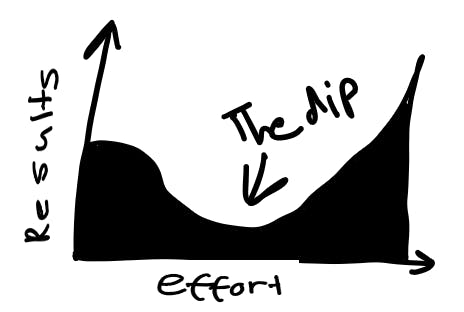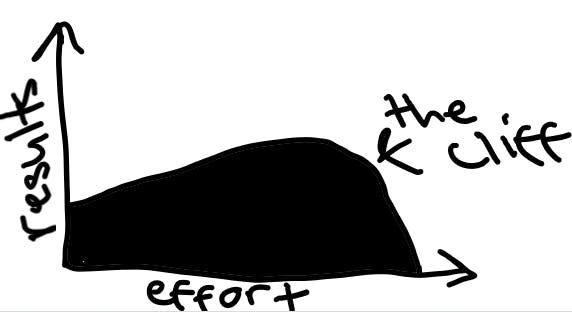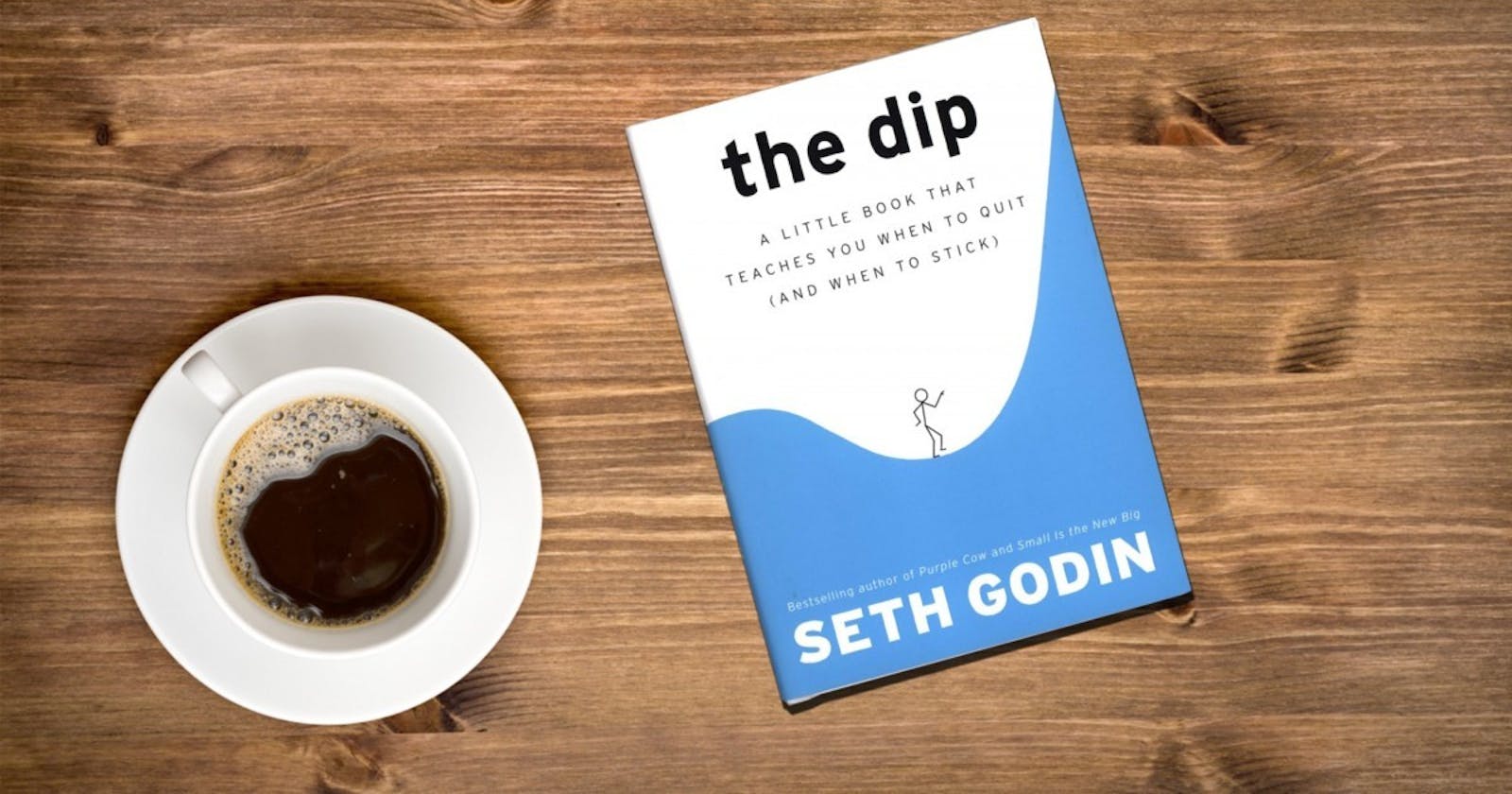The Dip: A little book that teaches you when to quit and when to stick
by Seth Godin
Being the best in the world is seriously underrated
Extraordinary benefits accrue to the tiny minority of people who are able to push just a tiny bit longer than most
Extraordinary benefits also accrue to the tiny majority with the guts to quit early and refocus their efforts on something new.
Quit the wrong stuff; stick with the right stuff; have the guts to do one or the other
Quitting is often a great strategy, a smart way to manage your life and your career
Scarcity makes being at the top worth something
Best as in : best for them, right now, based on what they believe and what they know
In the world as in : in their world, the world they have access to
The mass market is dying; now there are a million micro markets, but each micro market still has the best
The world is getting larger because I can now look everywhere when I want to find something or someone
Also, the world is getting smaller because the categories are getting more specialized
The Dip and the Cul-de-sac
From a test-taking book "Skim through the questions and answer the easiest ones first, skipping ones you don't know immediately" BAD ADVICE
Superstars can't skip the ones they don't know, in fact, the people who are the best in the world specialise at getting better really good at the questions they don't know
The people who skip hard questions in the majority, but they are not in demand

The dip is the long log between starting and mastery
A long log that' actually a shortcut, because it gets you where you want to go faster than any other path
The dip is the long stretch between beginners luck and real accomplishment
The cul-de-sac (French for 'dead-end') it's a situation where you work and you work and you work and nothing much changes
Cul-de-sac exists and you need to embrace the fact that when you find one, you need to get off it

Cliff - it's a situation where you can't quit until you fall off, and the whole thing falls apart
The dip creates scarcity, scarcity creates value
The brave thing to do is to tough it out and end up on the other side - getting all the benefits that come from scarcity
The mature thing is not even to bother starting because you're probably not going to make it through the dip
The stupid thing to do is to start, give it your best shot, waste a lot of time and money and quit right in the middle of the dip
The harder it gets, the better chance you have of insulating yourself from the competition
Seven reasons you might fail to become the best in the world:
You run out of time (and quit)
You run out of money (and quit)
You get scared (and quit)
You're not serious about it (and quit)
You lose interest or enthusiasm or settle or being mediocre (and quit)
You focus on the short term instead of the long (and quit when the short term gets too hard)
You pick the wrong thing at which to be the best in the world (because you don't have the talent)
Quit or be exceptional. The average is for losers
Short-term pain has more impact on most people than long-term benefits do, which is why it's so important for you to amplify the long-term benefits of not quitting
Persistent people are able to visualize the idea of light at the end of the tunnel when others can't see it
At the same time, the smartest people are realistic about not imagining light when there isn't any
If you're not going to be the #1, you might as well quit now
Quitting the projects that don't go anywhere is essential if you want to stick out the right ones
When you reach a plateau you should move on to something new (a new challenge)
Strategic quitting is a conscious decision you make based on the choices that are available to you
Quitting is better than coping because quitting frees you up to excel at something else
Quitting as a short-term strategy is a bad idea, however, quitting for the long term is an excellent idea
If pride is the only thing keeping you from quitting and there is no dip to get through then you're more likely wasting an enormous amount of time and resources defending something that will heal pretty quickly
Ignore the sunk cost, if it has a future you quit
Three questions to ask before quitting:
Am I panicking?
Who am I trying to influence?
What sort of measurable progress am I making?
If quitting is going to be a strategic decision that enables you to make smart choices in the marketplace, then you should outline your quitting strategy before the discomfort sets in
If you've got as much as you've yet, use it to become the best in the world, to change the game, to set the agenda for everyone else.
All our successes are the same. All our failures too
We succeed when we do something remarkable
We fail when we give up too soon
We succeed when we are the best in the world at what we do
We fail when we get distracted by tasks we don't have the guts to quit
